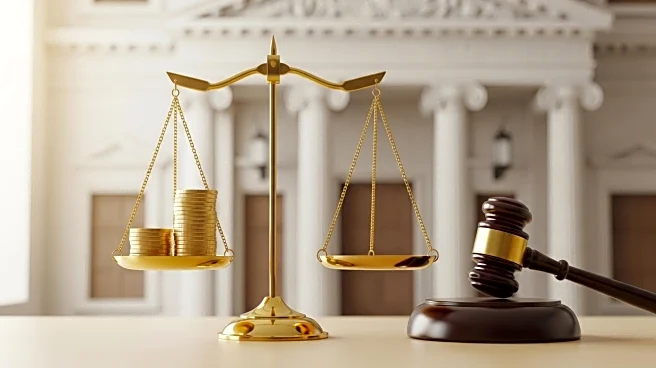What's Happening?
A coalition of unions, employers, and religious groups has filed a lawsuit in federal court in San Francisco to block President Trump's proposal to impose a $100,000 fee on new H-1B visas for highly-skilled foreign workers. The lawsuit challenges a proclamation issued by Trump, arguing that his authority does not extend to altering the statutory framework of the H-1B visa program. The plaintiffs include the United Auto Workers union, the American Association of University Professors, and several religious organizations. They contend that the fee would stifle innovation and hinder small businesses and startups from hiring foreign talent. The H-1B program, which grants 65,000 visas annually for specialized fields and an additional 20,000 for advanced degrees, is crucial for technology companies that rely on foreign workers.
Why It's Important?
The proposed fee hike has significant implications for the U.S. economy and its ability to attract global talent. Critics argue that the fee could deter companies from hiring foreign workers, potentially leading to a shortage of qualified professionals in specialized fields. This could impact innovation and competitiveness in industries reliant on high-skilled labor, such as technology and engineering. Business groups emphasize the importance of H-1B visas in addressing the shortage of qualified American workers, suggesting that the fee could disrupt the balance between domestic and foreign labor. The lawsuit highlights the tension between immigration policy and economic growth, with potential consequences for U.S. businesses and their global competitiveness.
What's Next?
The legal challenge against the fee is expected to proceed through the courts, with potential implications for immigration policy and business practices. If the lawsuit succeeds, it could prevent the implementation of the fee, maintaining the current structure of the H-1B visa program. Conversely, if the fee is upheld, businesses may need to adjust their hiring strategies, potentially seeking alternative visa options or increasing domestic recruitment efforts. The outcome of the case could influence future immigration policies and the balance between protecting American jobs and fostering innovation through foreign talent.
Beyond the Headlines
The lawsuit raises broader questions about the balance between national security and economic interests in immigration policy. President Trump's order cites concerns about national security and the replacement of American workers, reflecting ongoing debates about the role of foreign labor in the U.S. economy. The case also underscores the legal complexities of executive authority in immigration matters, with implications for the separation of powers and the role of Congress in setting immigration policy.












